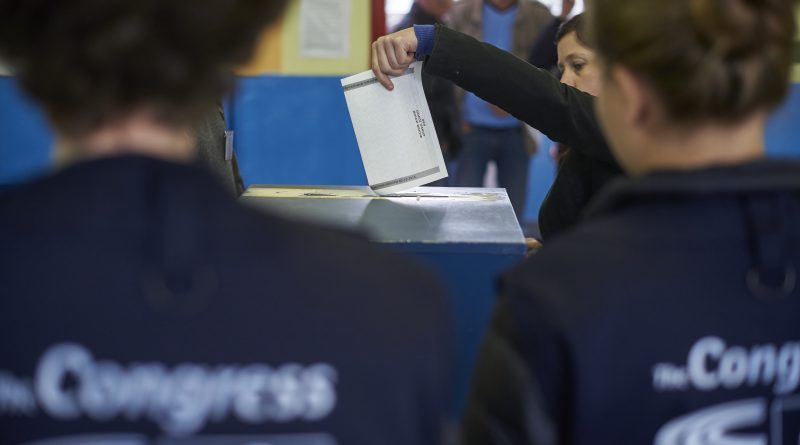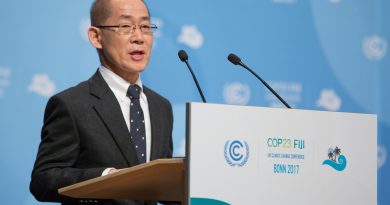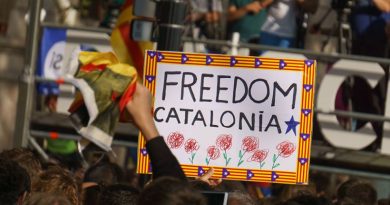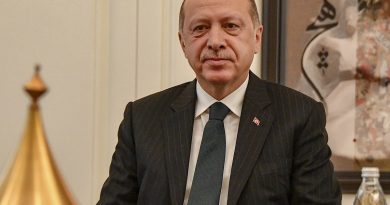Recent Bosnian Elections Spark Rise in Ethnic Tensions
Austin Delsontro
Staff Writer
The Bosnian election commission (CIK) has ordered a recount of votes for the presidency of Republika Srpskaafter numerous complaints filed by opposition parties alleged the rigging of ballots by pro-Russia Bosnian Serb leader Milorad Dodik, according to Reuters. On October 17, CIK began the recount of ballots for the presidential race from all polling stations at the central counting point in the capital city of Sarajevo. Dodik, who declared victory already, believes the CIK decision to be politically motivated as well as a violation of the law.
Beginning on October 6, the ethnic tensions of Bosnia and Herzegovina have boiled over with thousands protesting results in their country’s general election, with allegations of Dodik rigging the vote to win the presidency of Republika Srpska, the Associated Press details. Questions have reemerged whether peace can remain between the different ethnic communities under a unique government once adapted for peace, but recently, falling short of maintaining order.
Other election results from the October 2 election showed that Denis Bećirović won the race for the Muslim Bosniak seat on the country’s three-member presidency, DW News reports. Becirevic won 55 percent of the vote over opponent Bakir Izetbegović. For the Croat presidency seat, Željko Komšić defeated his opponent Borjana Krišto with 55 percent of the Croat vote. In the race for the Serb member of the Bosnian presidency, Željka Cvijanović, a close ally of Dodik, won 51 percent of the vote over multiple candidates. Dodik, who just served a term as the Serb member of the presidency, ran for the separate job of president of the Republika Srpska, the autonomous Serb part of the country. It was in that separate election against his opponent Jelena Trivić, where the protests and allegations of election fraud occurred.
Milorad Dodik has been one the most powerful politician in Bosnia for years, explains Atalyar. A close ally of Russian President Vladimir Putin, Dodik has been sanctioned by the United States and other nations for allegedly trying to undermine peace and stability in the country. The nationalist politician has repeatedly called for the separation of Republika Srpska from the rest of Bosnia.
The country of Bosnia and Herzegovina is a complicated political entity, EuroNews details. Because of the Bosnian War, the country is divided into two political entities: the Serb-dominated Republika Srpska and the mixed Bosniak-Croat Federation of Bosnia and Herzegovina. During the Bosnian War, more than 100,000 people died with around 2 million people displaced. The Dayton Accords, which brought the bloody conflict to an end in December 1995, divided the country into the two autonomous entities. Given the region’s diversity, the Dayton Accords dictated Bosnia and Herzegovina’s state would be collective with the Presidency composed of three members: one Bosniak and one Croat from the Federation and one Serb from the Republika Srpska. This presidency rotates every eight months among the three during a four-year term.
It is important to note that political candidates must register their ethnicity to run for office and citizens may only vote for a single member of the presidency within their ethnic constituency explains the International Republican Institute. Because ethnic identity acts as a means of political participation, Bosnia and Herzegovina’s minority groups, such as the Roma and Jews, cannot run for high office creating a lack of minority representation. This oversight alienates minorities and prevents them from having a voice in the direction of their country.
Since the end of the Bosnian War, the country has been economically stagnant, notes Al Jazeera. Bosnia and Herzegovina, which has a population of 3.3 million people, seems forever plagued by corruption and ethnic tensions which have impeded efforts to join the European Union, something that three out of four Bosnians want. In a nationwide survey on public perception of elections, more than 40 percent of Bosnians believed their country’s electoral system did not allow for a genuine reflection of citizens’ will. While Bosnians anxiously await the electoral recount, observers around the world wonder if political stability can be maintained within a system that divides its citizenry by ethnicity.
Image courtesy of Congress of Local and regions, Sandro Weltin/Council of Europe




